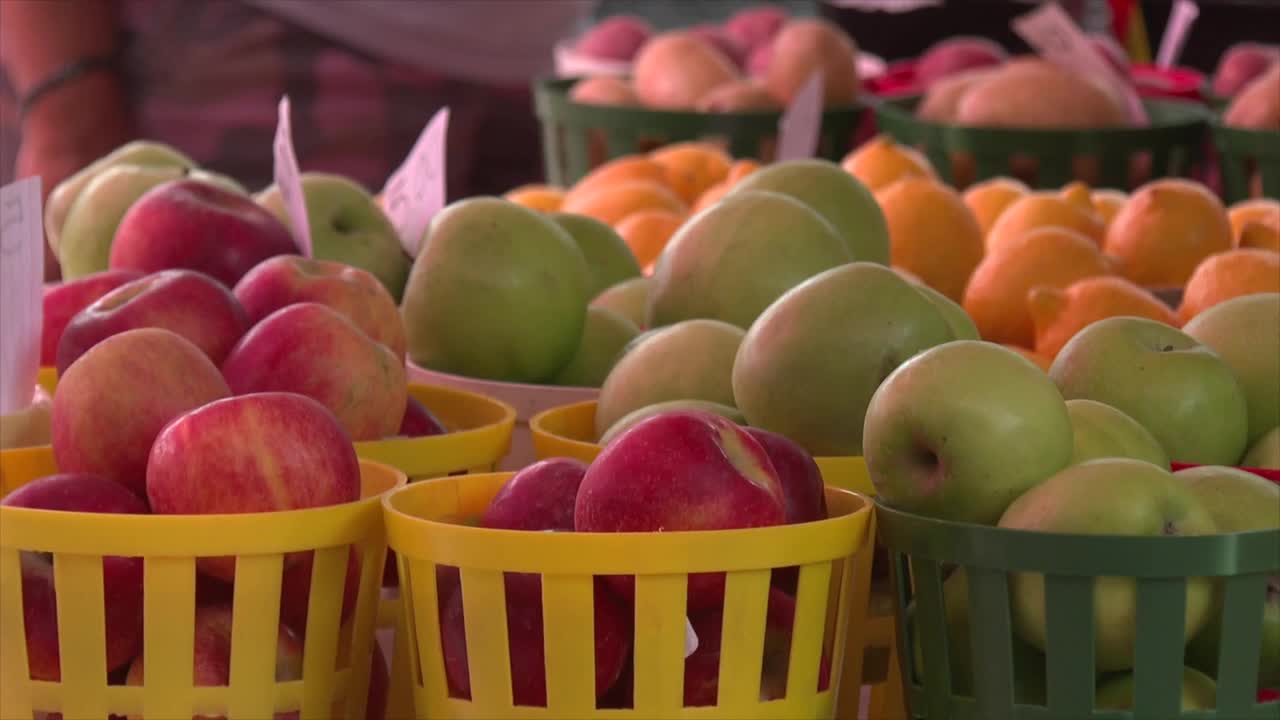TALLAHASSEE, Fla. (WTXL) — With rising costs, fewer crops, and dwindling customers, a local producer seller says the current drought in the Big Bend is hurting her business.
- Farmers across the Big Bend are facing major challenges this harvest season due to below-average rainfall, with rain totals down by 3 to 4.5 inches.
- Producer sellers like the "Tomato Lady" are struggling to keep prices reasonable as the cost of produce.
- Watch the video to see how the drought’s impact reaches beyond farms and crops.
BROADCAST TRANSCRIPT:
When you think of fall harvest, you probably imagine tables full of fresh, colorful produce. But this year, a drought is drying up more than just fields, it's also squeezing local businesses.
As fall settles in, farmers across the Big Bend are heading into harvest season, but this year, severe drought conditions are creating major challenges.
One local produce seller, Aguita Guerrero, also known as the "Tomato Lady," says it's been especially difficult.
"We lose customers, because sometimes they think the price is high. But it is not me. It's the farm because they have to make money too, because no rain, everything go high," Guerrero said.
Right now, the Big Bend is sitting in the middle of the drought scale, classified as a severe drought.
Cameron Young, a National Weather Service Meteorologist, says it's the worst we've seen since fall of 2023.
"Very similar to a couple of years ago...it's generally late summer into early fall when we get into these drought patterns. If the rain shuts off early or if it stays hotter for longer, that's really when we start to see it set in," Young said.
Rain totals are well below average down by 3 to 4.5 inches.
Without that much-needed moisture, crops dry out, and farmers are forced to irrigate the land themselves.
This not only hurts their harvests but also impacts the people they sell to, who may no longer have access to fresh, local produce.
"It is difficult to find any produce I need because I have to try different places that have rain so I can buy my produce fresh," Guerrero said.
Drought doesn't just mean dry weather. It can mean a smaller food supply, higher grocery prices, rising water bills, and even an increased risk of wildfires.
"Extra irrigation is the biggest thing to do whether it's yards turning brown or nurseries with plants that just aren't thriving right now," Young said.
Forecasters expect this drought to last through the end of the year, especially since October and November are typically the driest months here in the Big Bend. So neighbors will likely have to keep watering their yards and plants themselves.
Want to see more local news? Visit the WTXL ABC 27 Website.
Stay in touch with us anywhere, anytime.




